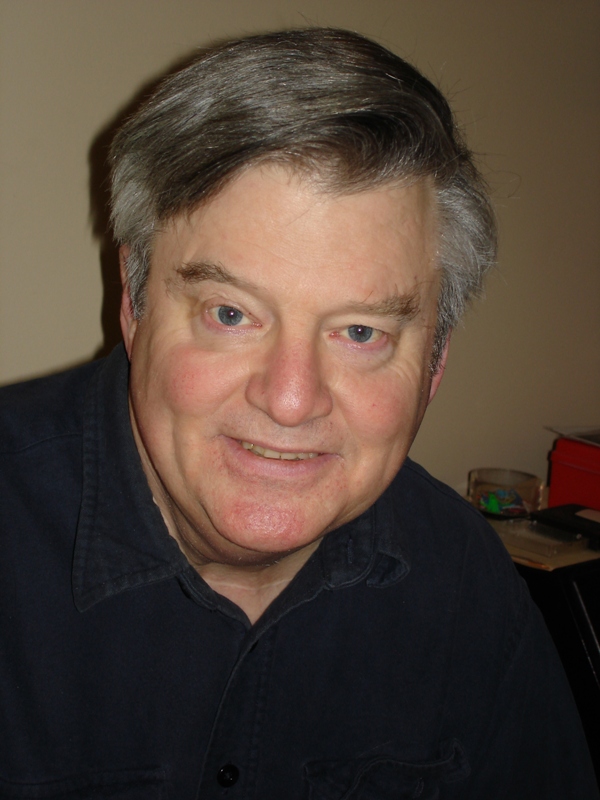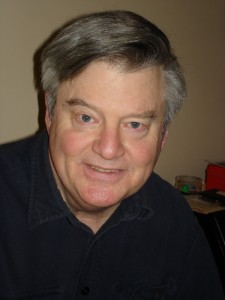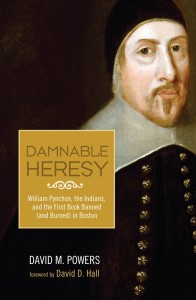WESTFIELD-Historian David M. Powers has had a fascination since he was 12 with William Pynchon, “entrepreneur founder” of Springfield in 1636.
“I found a map of early Springfield in a book in the attic of my uncle’s house on Westfield Street in West Springfield,” said Powers. “It showed the layout of a very simple town, one main street plus a few other features – far, far different than the Springfield of my day. That got me interested in local history, and got me started on my ‘Project Pynchon.’”
Powers will bring his fascination with Pynchon to life when he presents a lecture on Sept. 21 at the Westfield Athenaeum. Powers grew up in Western Massachusetts and graduated from Carleton College and Harvard University.
“In graduate school I wrote a paper on Pynchon, which eventually, many years later, served as the start of my book,” said Powers. He is the author of “Damnable Heresy: William Pynchon, the Indians, and the First Book Banned (and Burned) in Boston.”
The 6:30 p.m. lecture coincides with the Athenaeum’s annual observance of Banned Books Week that celebrates the freedom to read. The program is free and open to the public.
“This week highlights the value of free and open access to information,” said Joyce Peregrin, public services librarian.
Banned Books Week brings together all book communities – libraries, booksellers, publishers, journalists, teachers and readers of all types – in shared support of the freedom to seek and to express ideas, even those some consider unorthodox or unpopular.
Pynchon’s 1650 book, “The Meritorious Price of Our Redemption,” was the first instance of book burning in British North America, according to Powers.
“His book presented his views on the Atonement,” said Powers. “Published in London, it was condemned and symbolically burned by the Bay Colony legislature because of their concern for how the English Parliament might react to strange ideas from New England.”
Powers said in his youth he was not aware of banned books.
“I always assumed I could find any book I wanted somewhere and read it sometime,” he said, adding that banning books doesn’t work.
“Even though banning books doesn’t work – and never has – the impulse continues as a recurrent, disturbing theme in modern life,” said Powers. “It seems today that the phenomenon of burning books frequently targets religious texts in particular. But banning books doesn’t ban ideas; far better to let people become acquainted with the contents of problematic books in order to challenge the claims they make. Also, banning or destroying books is powerless to prevent the ongoing public conversation which shapes culture.”
Powers has had a love of books since he was in elementary school and was introduced to the children’s book section on the first floor of the East Longmeadow Town Hall.
“I particularly remember volumes of black and white photographs from various cultures around the world,” he said. “The different foods, dress, and modes of transportation were presented as exotic, and they fascinated me.”
Powers also noted that his love of writing has always been linked to speaking.
“I feel there’s a dimension of sound to what I commit to paper, because much of my writing has been specifically designed for oral communication,” he said. “I’ve been drawn to nonfiction writing, which I find invariably engages my imagination, and I’ve always enjoyed that.”
Powers added that he “loves the challenge” of translating the realities of a foreign country – namely, the past – into the patterns and perspectives of the present.
During his talk, Powers will distill extensive research on Pynchon’s life, including his origins in England, noteworthy career, “remarkable and respectful” understanding of Native peoples, roles in government and as magistrate, and his “ill-fated theological undertakings.”
“I set him and his considerable achievements in the context of his time, the first half of the 17th century, which proved to be a pivotal era for the emergence of America,” said Powers. “Those who attend the lecture will discover much they had never heard about the larger area in which Westfield is located, as well as the life of the pioneer English developer of Western Massachusetts.”
Following his talk, Powers will be available to sign copies of his book.




